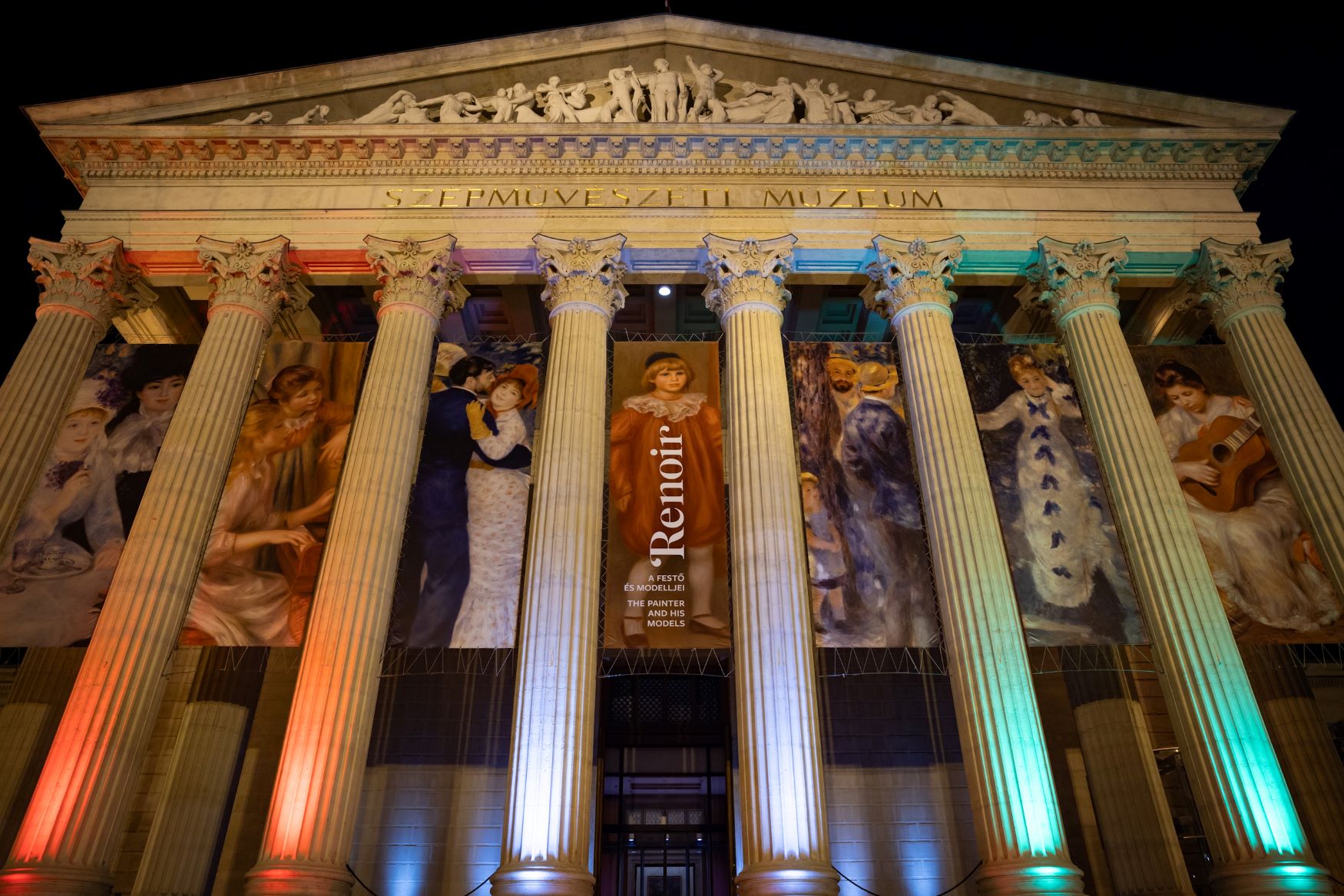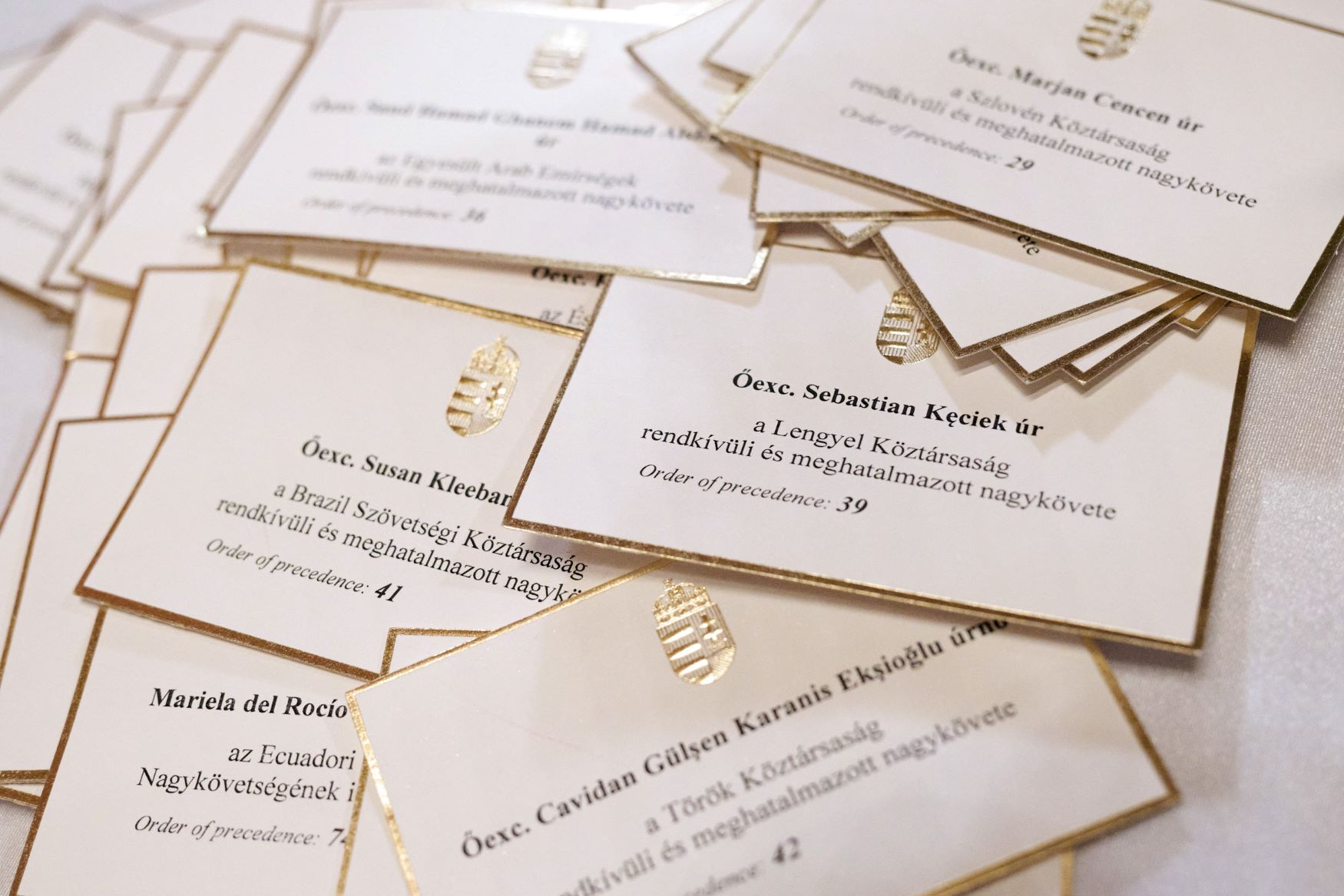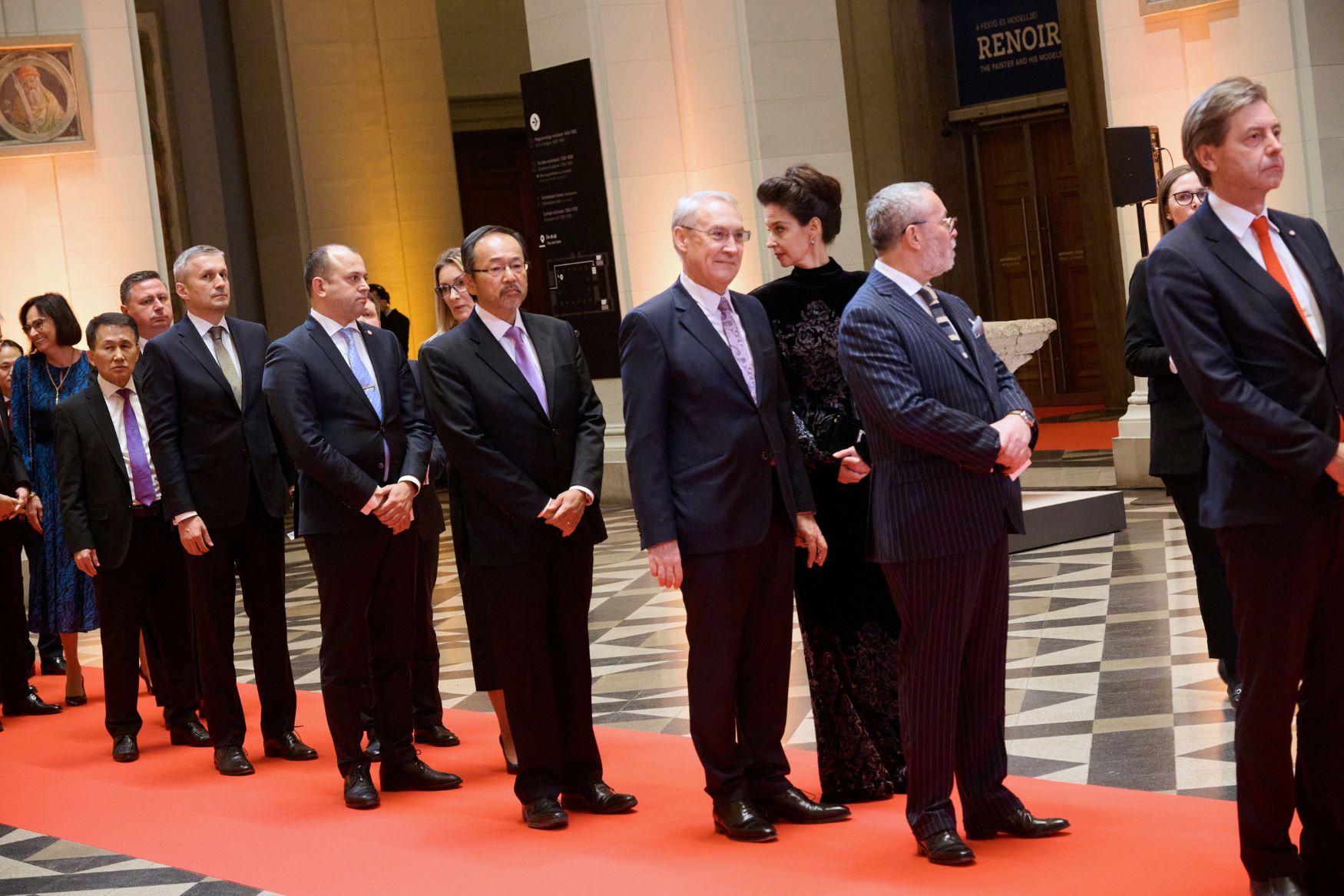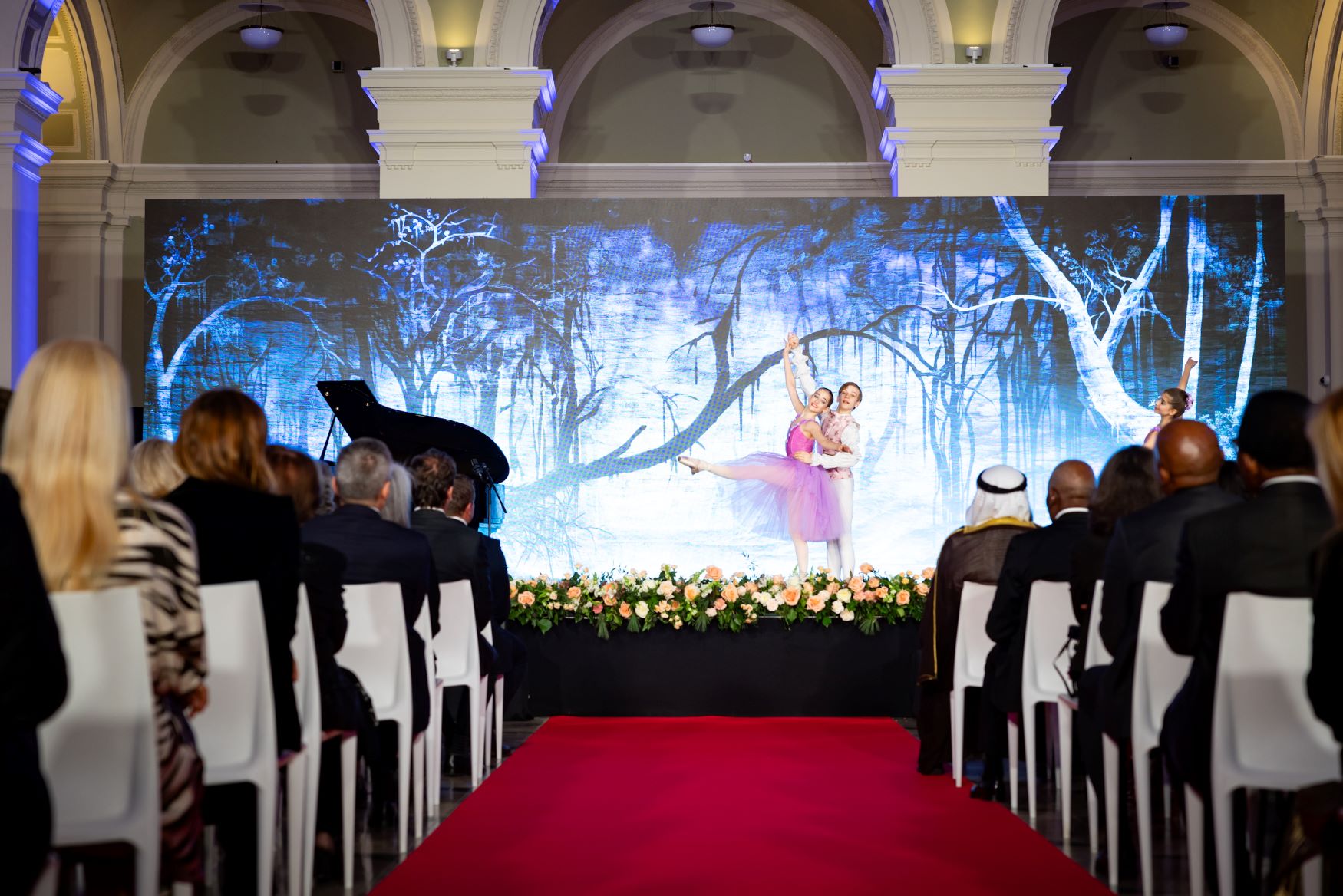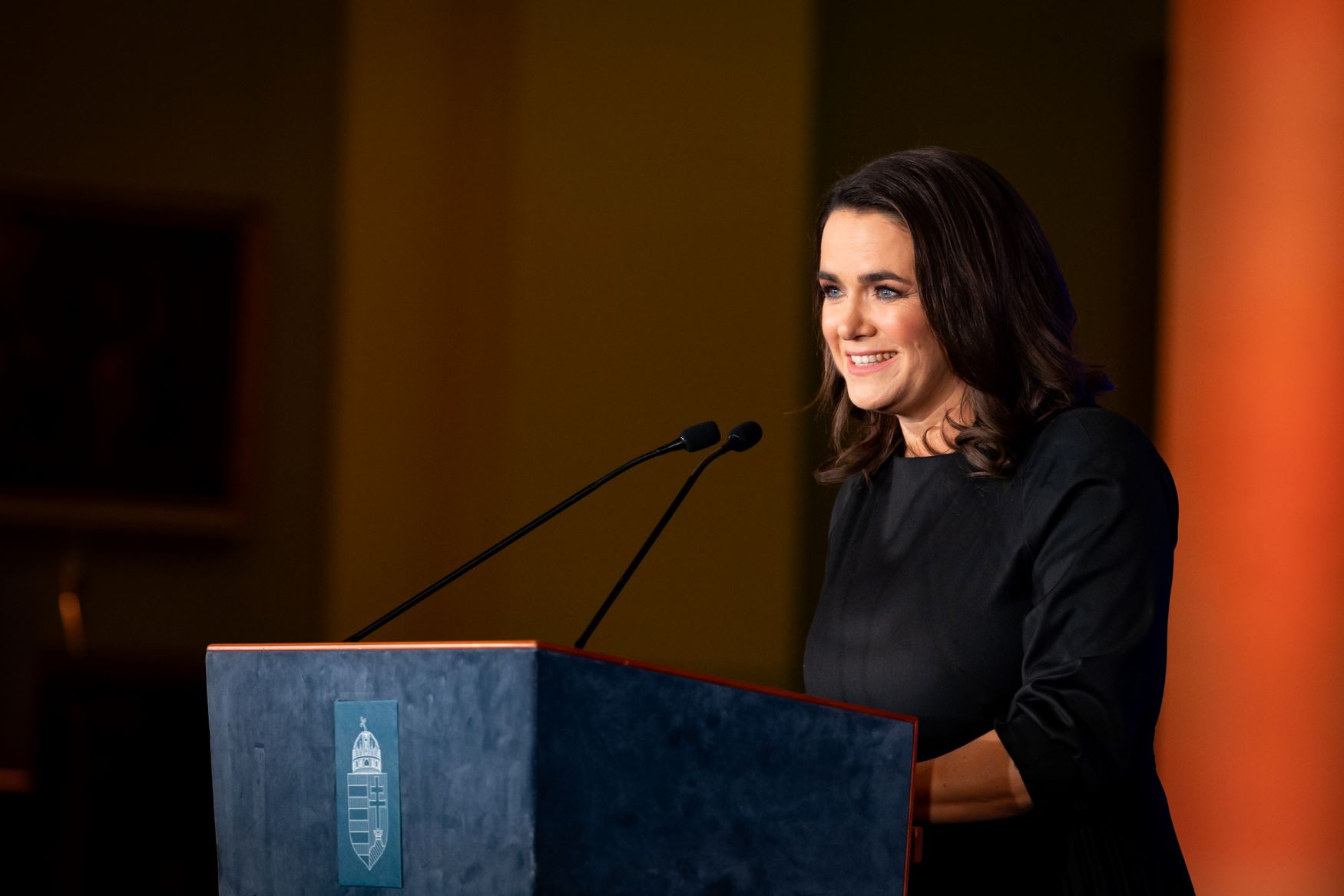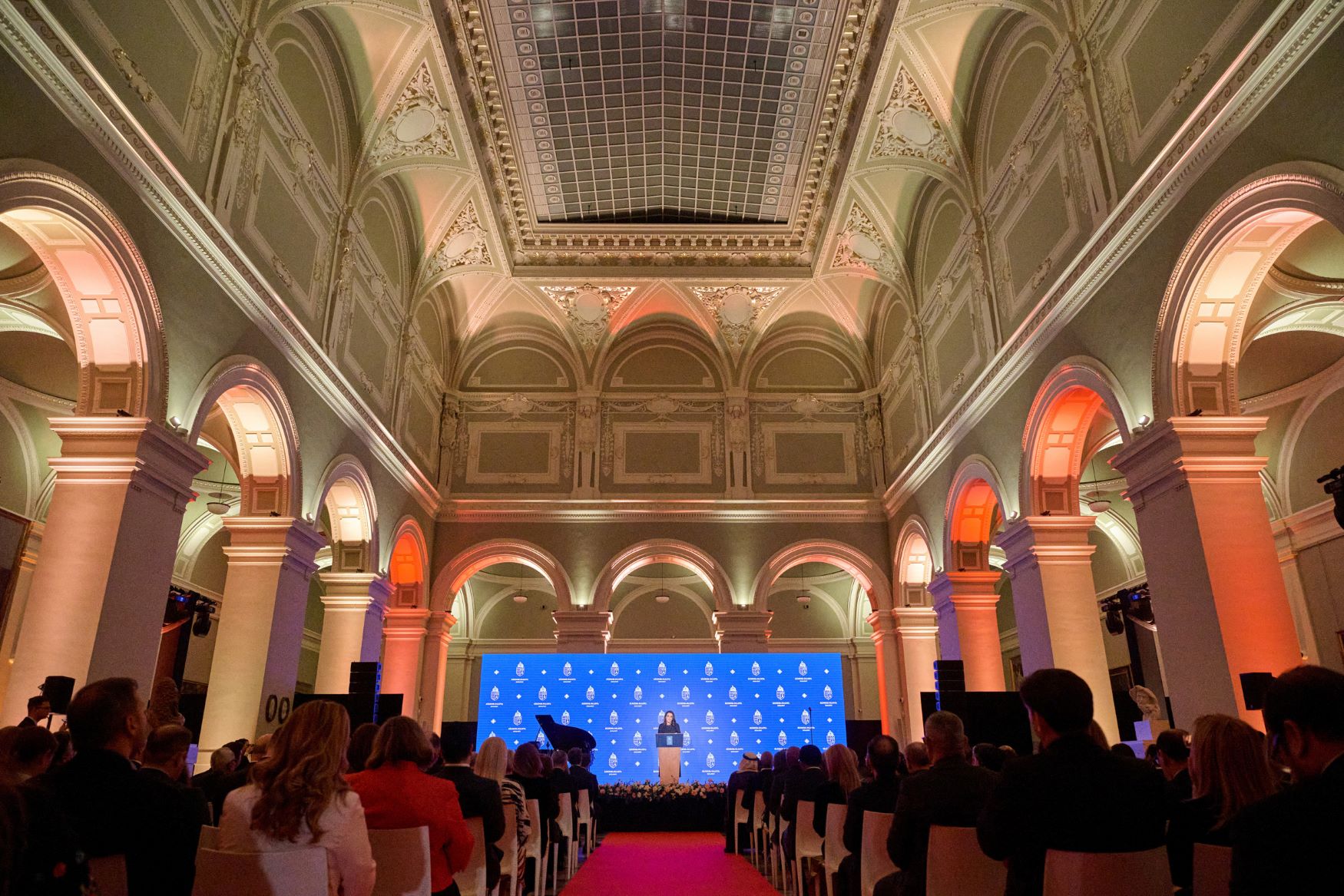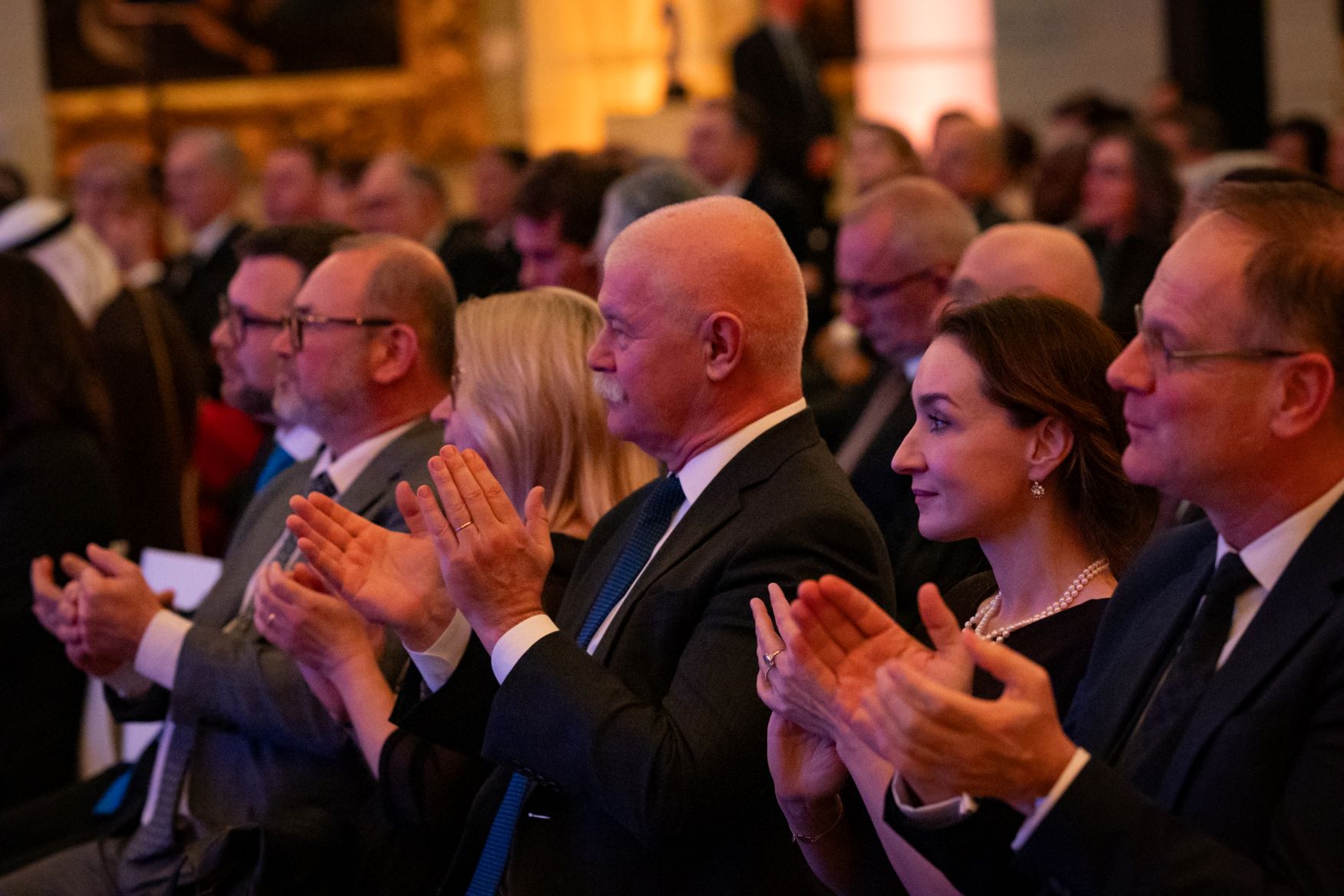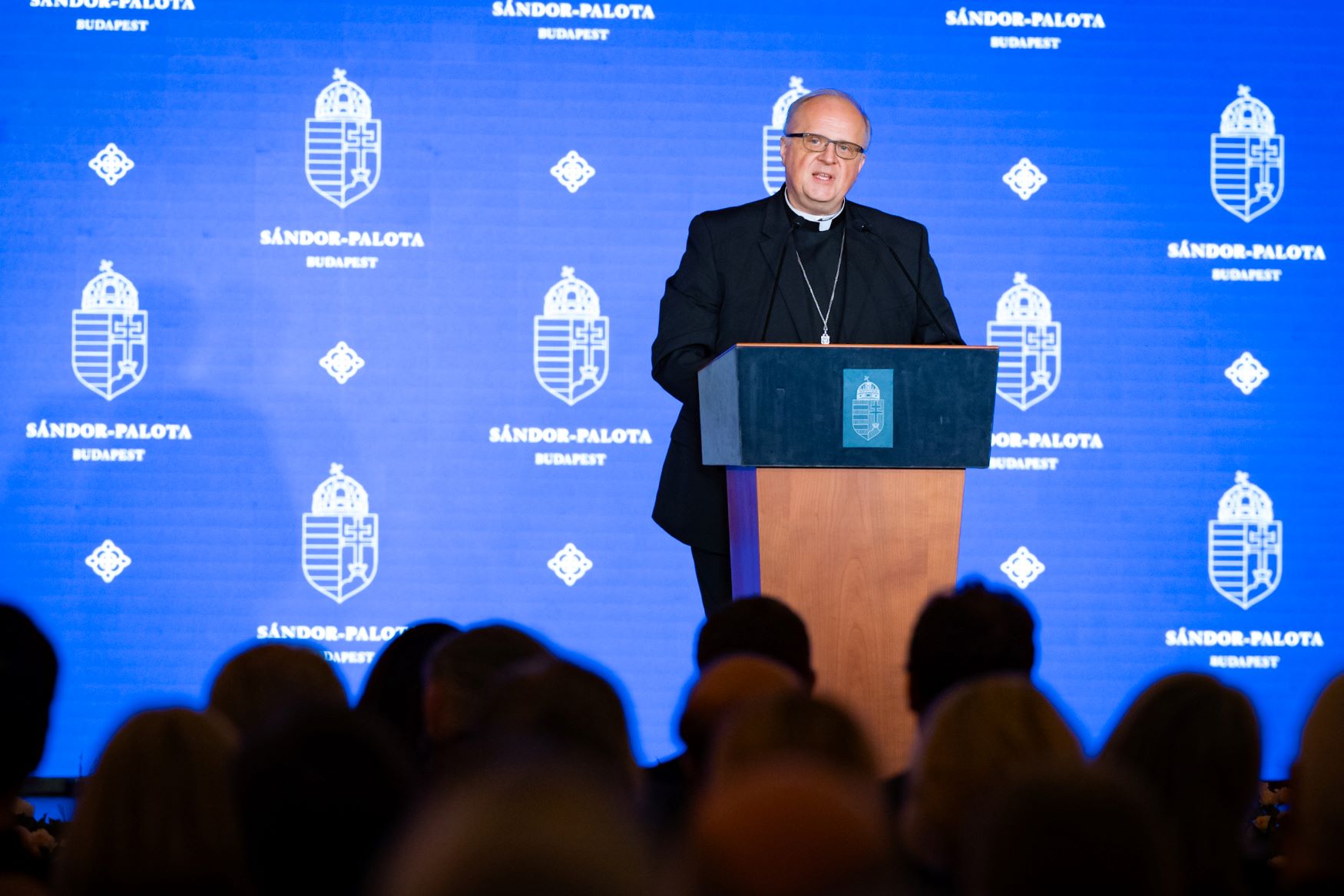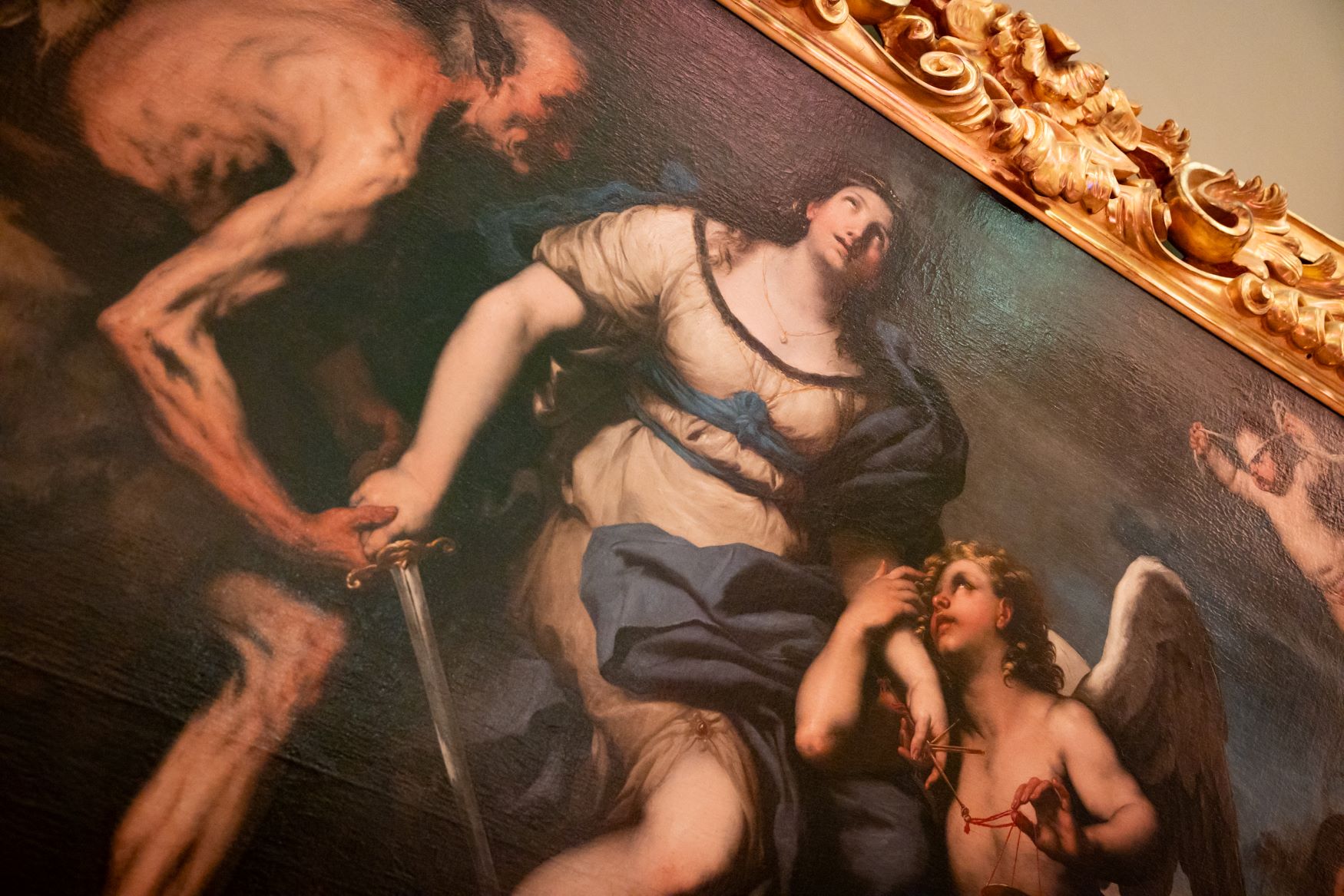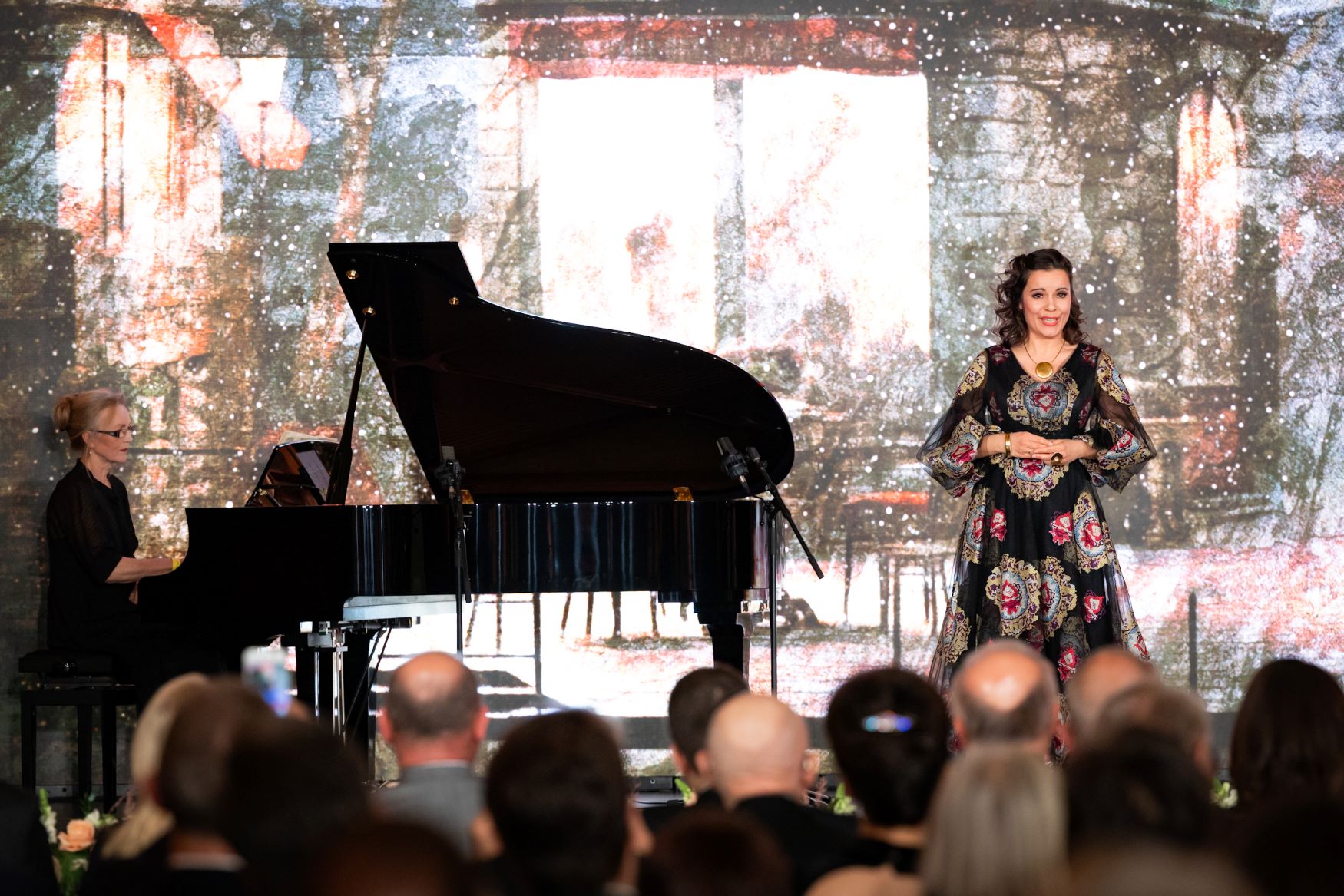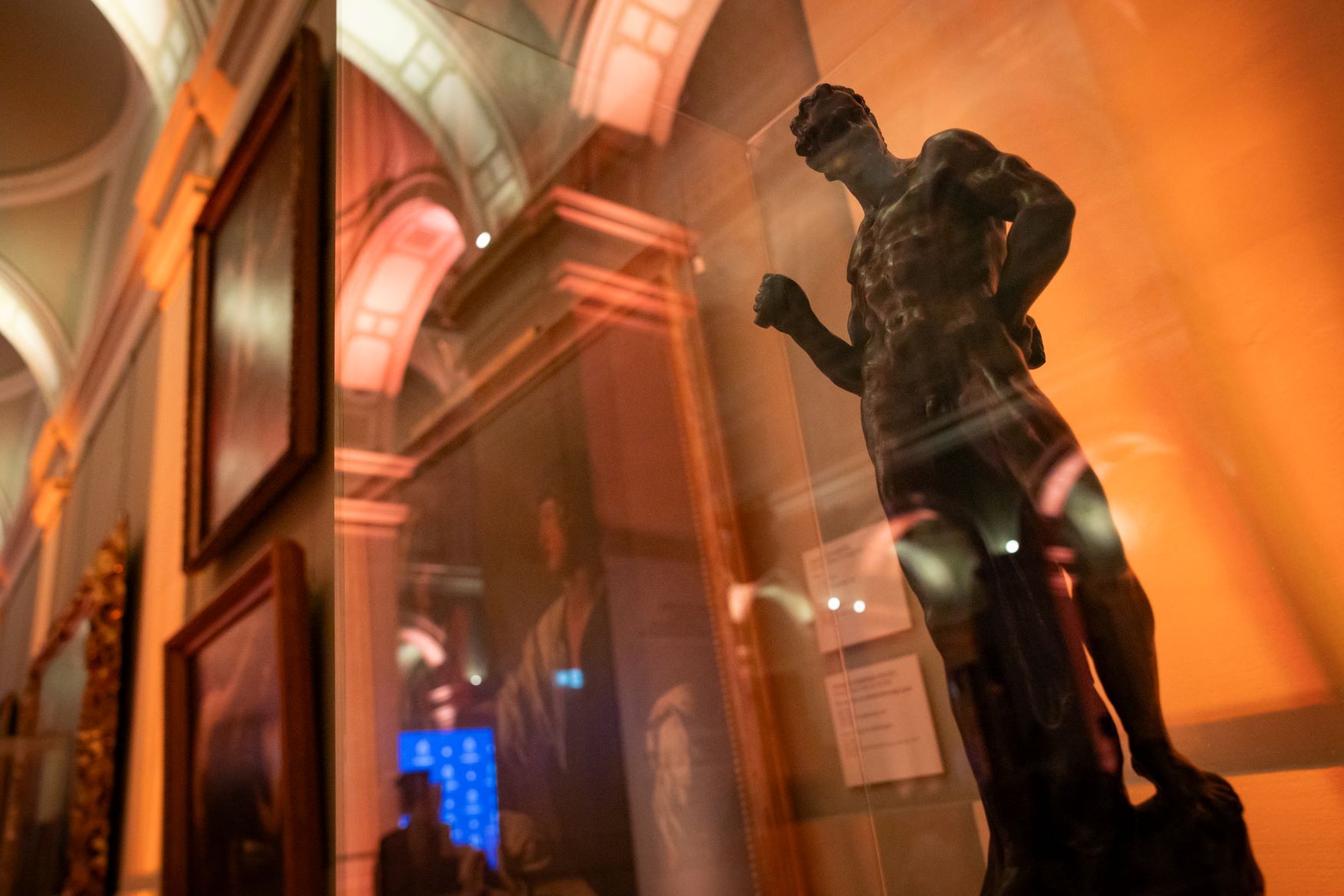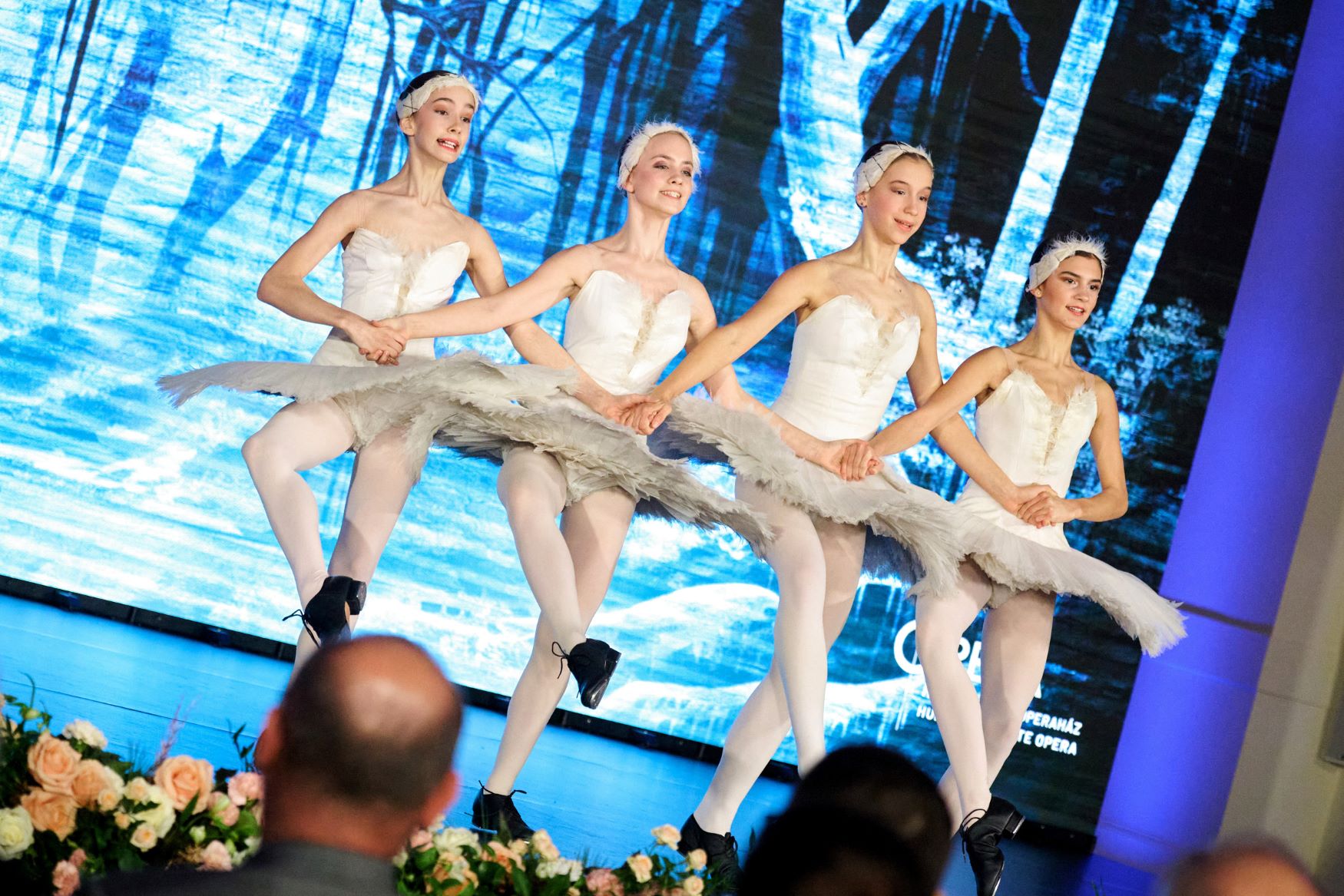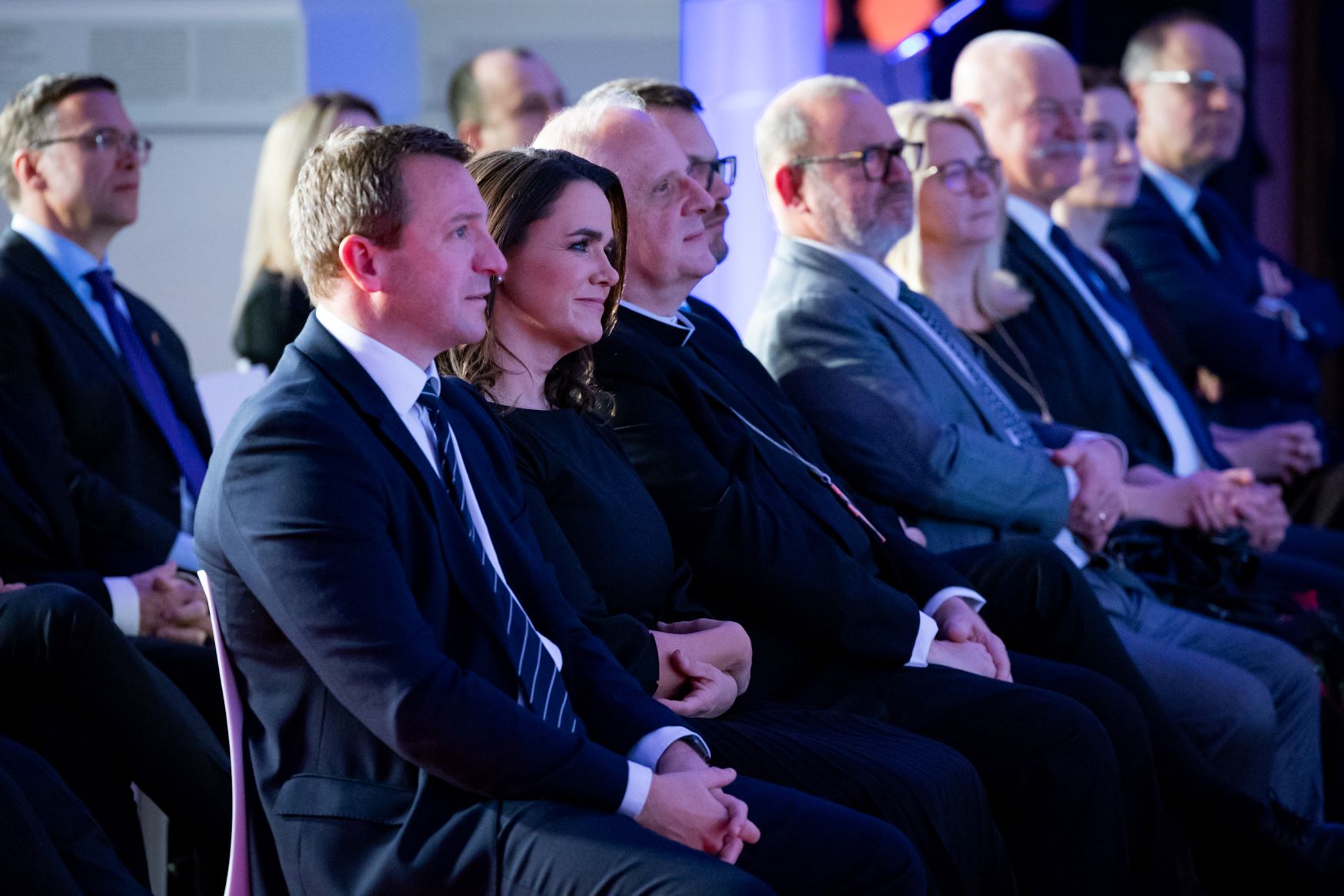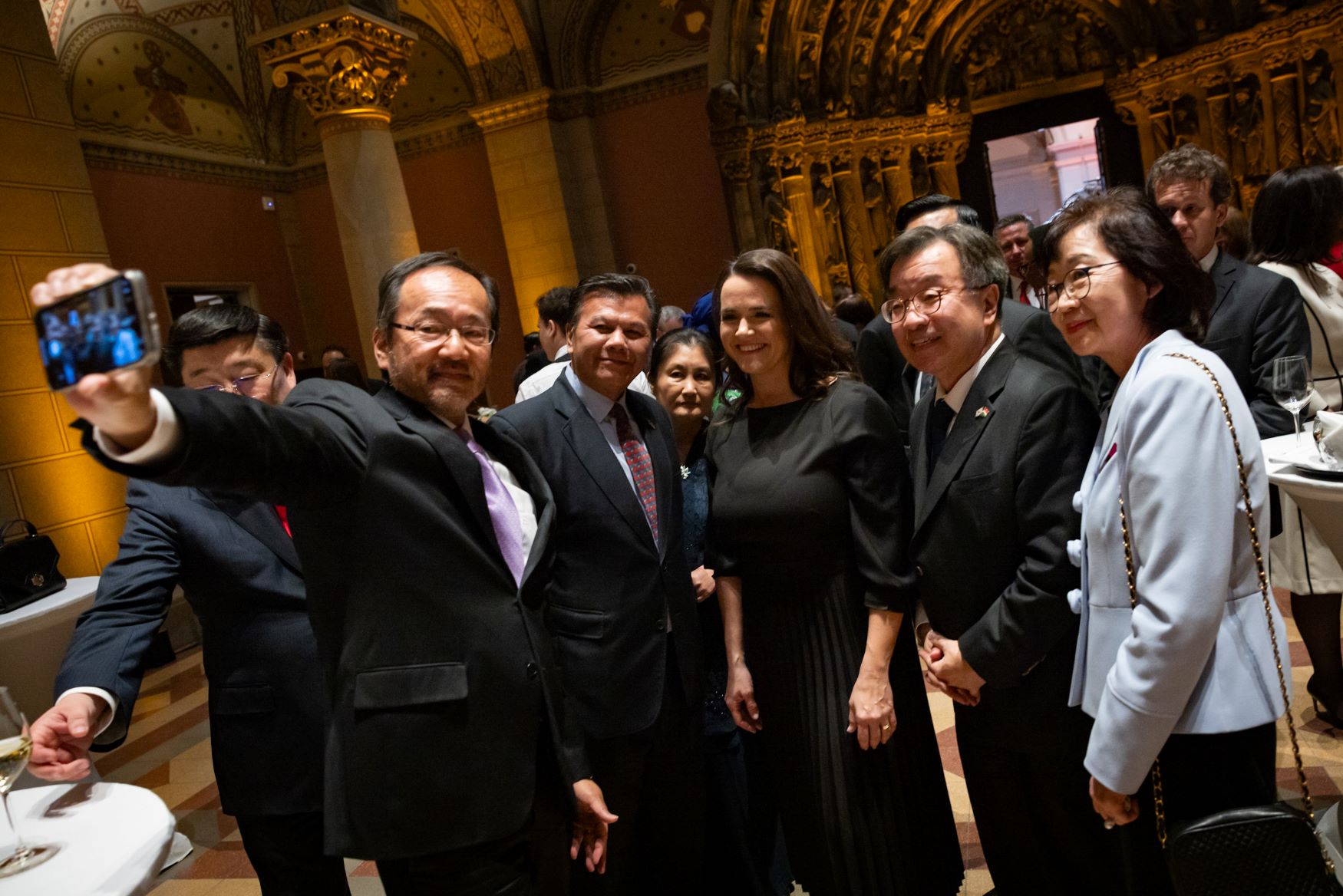Hungary will prove once again that it is capable of being a good President of the Council of the European Union
Hungary will once again prove that it is capable of being a good President of the Council of the European Union - stated President Novák on Wednesday in Budapest, at the Museum of Fine Arts, where she greeted members of the diplomatic corps accredited to Hungary.
In her speech, the President drew attention to the fact that while fifty years ago one-fifth of the world's population was European, today it is only one-tenth. EU countries account for 6 percent of the global population today, and by 2070, this is expected to decrease to 4 percent.
If we do not pay attention to the population decline in Europe, we will make a serious mistake - warned Katalin Novák, emphasizing that Europe is becoming less and less of a global player economically. The question is whether we can change this, she added.
She reminded that there will be elections in Europe this year, giving 400 million European citizens the opportunity to determine the direction of European politics.
Directly after the elections, in the second half of the year, Hungary, celebrating the 20th anniversary of its EU accession and the 25th anniversary of its NATO accession, will assume the presidency of the European Union - emphasized Katalin Novák, highlighting that Hungary will once again prove its ability to be a good leader of the European Council.
Emphasising two important topics of the Hungarian presidency, the President mentioned the demographic challenges and the importance of once again accelerating the European Union accession of Western Balkan countries.
Looking back on the past year, Katalin Novák expressed that we can all agree that 2023 was a very challenging year, and its challenges will continue to dominate this year as well. Katalin Novák mentioned ten challenges: ongoing armed conflicts - highlighting the Ukrainian and Israeli-Palestinian conflicts -, economic difficulties, political uncertainty and early elections in several countries, growing social tensions, natural disasters, mass illegal migration, the phenomenon of disinformation, the significant emergence of artificial intelligence, the activities of non-political figures harbouring hidden political ambitions, and the influence of near-monopolistic technological companies.
The question is how the international community, the leaders of the world will address these challenges - noted the President, adding: although responses to the challenges have been rather inadequate so far, 2024 offers tremendous opportunities, as it will be the year of democracy and elections worldwide. Elections will affect approximately four billion people in 76 countries, with elections being held in eight of the world's ten most populous countries - she emphasized, adding: she hopes that everyone will have equal opportunity to participate, and that the outcome of the elections will be respected everywhere.
Speaking of Hungary, among the memorable events of last year, she highlighted Pope Francis' apostolic visit, the athletics World Championships, the two new Hungarian Nobel laureates, Katalin Karikó and Ferenc Krausz, as well as the fact that the Hungarian national football team remained undefeated in the qualifiers for the European Championship.
She emphasized that Hungary is a safe and family-friendly country, which is becoming increasingly popular among investors as well. Last year, over 13 billion euros of investment flowed into the country, creating 19 thousand jobs.
Hungary belongs to the group of Western-oriented countries and is a member of Western alliances, but it also builds and maintains pragmatic relationships and cooperation with other parts of the world - emphasized Katalin Novák.
She reminded everybody that over the past one and a half years, she has been aiming to shift the focus on international relations and diplomacy. Spending 104 days abroad, she visited 30 different countries on 36 occasions, and also participated in around a hundred diplomatic events in Hungary.
Regarding the venue, which is currently hosting a Renoir exhibition for a few more days, the importance of Francophone relations was highlighted. She mentioned that, at her initiative, the government will allocate 1.5 billion forints for the development of Hungarian-Francophone relations in the coming years.
Reiterating the importance of the fight against population decline, she reminded the participants of last year's Budapest Demographic Forum and her own initiative to establish the Network of Family-friendly Presidents. She added that during Hungary's EU presidency in the fall, they will also organize an event on demography.
Katalin Novák mentioned another highlight of the fall: the summit of female heads of state from around the world in Budapest.
Addressing the diplomats, she emphasized that while diplomacy today differs from what it was a decade ago, heads of state, for example, communicate directly with each other, diplomats still serve as credible sources of information for their countries and what they convey about Hungary is very significant. They know when to signal something and when not to. She encouraged them to seek good cooperation both with Hungary and within Hungary.
In his speech, Apostolic Nuncio Michael Wallace Banach drew attention to the elderly, women, and children, suffering worldwide due to wars and other conflicts. He expressed concern about the Israeli-Palestinian conflict, as well as the war in Ukraine. According to the Apostolic Nuncio, conflicts must be ended through negotiations.
He recalled a thought of Pope Francis, which he expressed during his apostolic visit to Hungary in the spring: Peace will never arise from the pursuit of strategic interests, but from a policy capable of considering everyone's interests, paying attention to people, the poor, and the future.
The Apostolic Nuncio expressed his hope that Hungary will continue to seek opportunities for the peaceful resolution of international conflicts through active diplomatic engagement in the new year.


